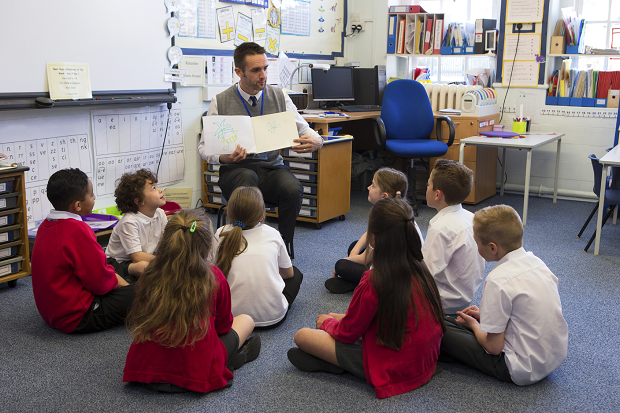
Today’s news review looks at a report on nursery teachers and calls for primary school pupils to be taught about healthy relationships.
Nursery teachers
On Tuesday, 1 November, Save the Children published a report claiming that there is a shortage of qualified nursery teachers.
This was picked up widely in print in Daily Mail, The Sun, The Mirror, and The Times. The issue was also covered this morning on Good Morning Britain and BBC Breakfast. Online, the report ran in the TES, the Guardian, BBC News and widely in the regional press.
The Government is working hard to attract talented staff and retain the best people in our nurseries. We are also developing a workforce strategy and investing a record £6billion in childcare by the end of this Parliament.
Bursaries and funding for course fees are available for eligible trainees and we are supporting employers to help with staff training. We are also considering how career progression can be improved in the sector.
While our work to train specialist providers has been reflected in most of the coverage, it is important for us to point out that the quality of nursery staff is good and has been improving. Between 2008 and 2013, the proportion of staff with at least a level three qualification – which is equivalent to an A-level - grew from 75% to 87%.
A Department for Education spokesperson said:
To date, we have trained over 16,000 specialist early years graduates and a record number of providers are now rated Good or Outstanding. But we want to get the best staff working in our nurseries and pre-schools so that every child has learnt the basics before they start school and can go on to reach their full potential.
We are developing a workforce strategy that aims to remove the barriers to attracting, retaining and developing great people and we will be investing a record £6 billion in childcare by the end of this Parliament. This is backed up the fairer funding system we are introducing for early years providers, so that money goes to the areas that need it most.
Anti-abuse strategy
On Tuesday, 1 November, abuse prevention campaign group Dare2Care called for primary school children to be taught about abuse.
The calls from Shadow Women and Equalities Minister Sarah Champion are part of a national action plan recommending children are given age-appropriate resilience and relationship education from as young as five-years-old.
This was picked up online in the Independent, the Guardian and the MailOnline ahead of the launch in Westminster today. It was also covered on Good Morning Britain.
Sex and relationship education is compulsory for pupils at state-maintained secondary schools. Many academies and free schools choose to teach it as part of their curriculum and we encourage them to do so.
We recognise that equipping young people to know what is and is not appropriate in relationships is important. As such, we are currently looking at all options to ensure that every child has access to high quality personal, social, health and economic education (PSHE).
We recently published updated safeguarding guidance for schools and keep this guidance under review. Additionally, we welcomed the guidance produced by the PSHE association teaching about consent, which was published in March 2015. Consent is a key issue in terms of helping young people to understand what is acceptable and unacceptable in terms of relationships.
A Department for Education spokesperson said:
Every young person deserves to grow up feeling supported and safe. Sex and relationship education is already compulsory in all maintained secondary schools, and many academies and free schools teach it as part of the curriculum. We are looking at all options to ensure that all children have access to high quality teaching of SRE and PSHE.
Successful sex and relationship education will help young people learn to respect themselves and others, and support them through their physical and emotional development as they move through adolescence but it is important all content is age-appropriate.
See our statutory guidance on sex and relationship education and read our proposed changes to safeguarding children in education.